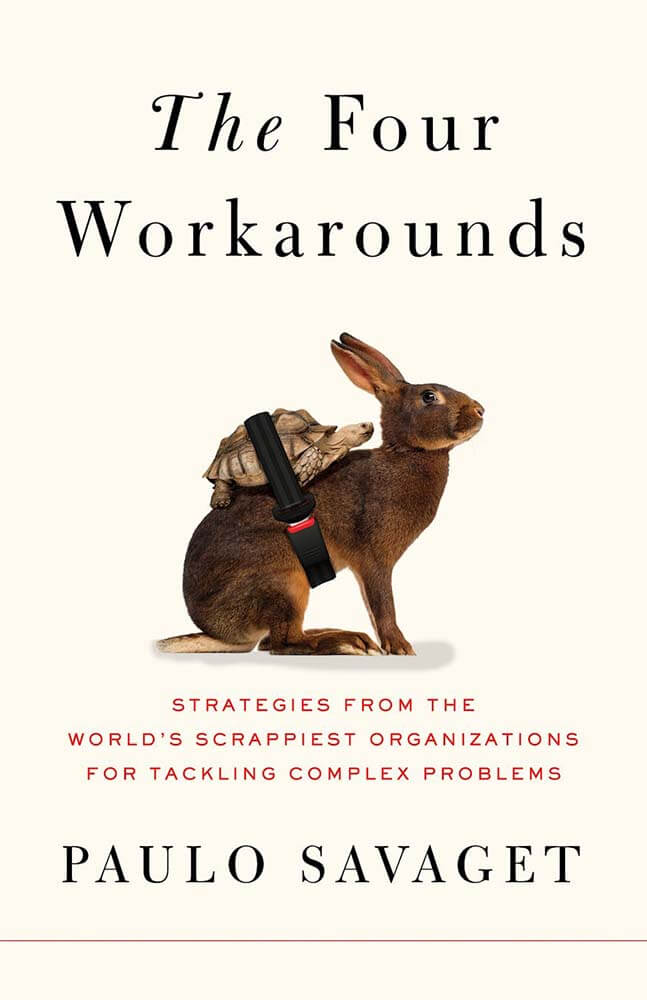
The most valuable lessons about problem-solving come from smaller groups, Paulo Savaget writes in his book, The Four Workarounds: Strategies From the World’s Scrappiest Organizations for Tackling Complex Problems. (Saïd Business School, University of Oxford)
Event organizers tasked with doing more with less can take a page from Paulo Savaget’s new book, The Four Workarounds: Strategies From the World’s Scrappiest Organizations for Tackling Complex Problems. Savaget, an Oxford University business and engineering professor, writes that for far too long, global corporations have been telling small organizations and nonprofits how to get things done, when in fact, the most valuable lessons about problem-solving come from the scrappiest groups.
 A workaround, he writes, is a “creative, flexible, imperfection-loving, problem-solving approach.” In the book, he identifies four kinds of workarounds:
A workaround, he writes, is a “creative, flexible, imperfection-loving, problem-solving approach.” In the book, he identifies four kinds of workarounds:
The piggyback capitalizes on pre-existing but seemingly unrelated systems or relationships.
The loophole relies on selectively applying or reinterpreting the rules that traditionally define a situation.
The roundabout disrupts or disturbs self-reinforcing behavior patterns.
The next best repurposes or recombines readily available resources in order to find different ways to get things done. When brainstorming next best ideas, Savaget suggests you start by asking yourself these questions:
- What resources are easily immediately available?
- How can resources be repurposed or reinterpreted to achieve different goals?
- How can resources be reassembled in unconventional ways?
- What’s the lowest-tech solution for this problem?
- What’s the highest-tech solution for this problem?
- What functions exist beyond your accessible technology’s originally intended design?
A workaround is immediate, resourceful, and good enough, and its core benefit is that it allows you get things done unconventionally. Collaboration may facilitate workarounds, but flexibility trumps collaboration.
Excerpted from The Four Workarounds, © 2023 by Paulo Savaget, published by Flatiron Books, flatironbooks.com.
Hack a Meeting
In a recent article in CNBC, Paulo Savaget gave this simple example of a workplace workaround: If your office never has an available conference room when you want to brainstorm with your team, you could go through the official channels and put in a request for the room and wait for an opening. Or, your team could implement standing meetings, which have been shown to prompt collaboration, or walk-and-talks, which studies indicate can boost creativity. Read the full CNBC article.
Michelle Russell is editor in chief of Convene.
